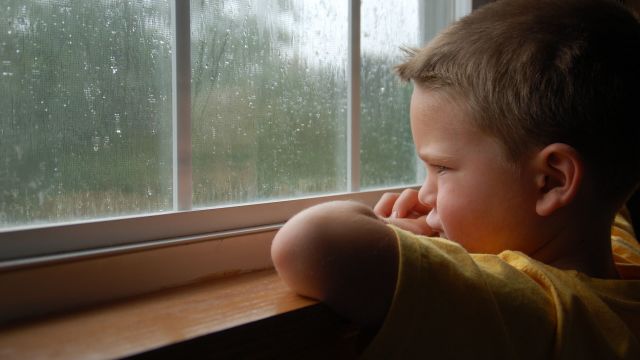Updated on January 29, 2025.
It’s something child advocates have seen time and again: During times of crisis such as a public health emergency or natural disaster, children may be especially vulnerable to abuse and neglect. Not only can these stressful events put at-risk kids in further danger, they may create safety issues in homes that were previously untroubled by violence.
Feelings of fear and uncertainty can worsen an already-tense situation, especially for families with young children or those with special needs, says Meira Ellias, LCSW-C, a social worker, psychotherapist and director of DC Therapeutic Services in Washington D.C. Family members may be displaced or confined together, parents can be financially strained, and everyone may worry about their health and well-being.
How might these crises affect family dynamics? Where can you turn if you feel like you’re approaching a breaking point? And what can you do if you think someone else’s child is being abused or neglected?
How times of extreme stress can affect behavior
During difficult events, kids may act differently than they do in normal times. They may be clingier or disobey more frequently, Ellias says, and parents may be perplexed by the sudden change.
In these situations, parents should try to look at the crisis through their children’s eyes. Kids may not understand why their routine is upset or why they can’t see family and friends. And depending on their age and the individual child, they might be unable to communicate their fears and concerns effectively.
The pressure can push parents to change their usual behavior, as well. Many feel sad, lonely, and anxious, which may contribute to them lashing out or using a heavier hand with discipline.
If you feel overwhelmed
When you find yourself feeling angry or upset during a conflict with your kids, Ellias recommends taking time to cool down before reacting in the moment. As long as your children are in a safe place or your partner can handle them, she suggests you “just walk away for a minute, have a good cry or call a friend.” Separating yourself from the situation can help you feel less agitated and respond in a more even-handed way.
In the longer term, keep these important strategies in mind:
Give yourself a break
During difficult times, it’s hard to hold yourself to your usual work or parenting standards. Be more flexible with your kids’ screen use if you need to, Ellias suggests, whether it’s so you can get dinner on the table or finish an important call.
Limit your alcohol intake
People may drink to cope with the stress of the crisis. But overdoing alcohol is part of the perfect storm, Ellias says. “Alcohol lowers your inhibitions, and it’s very easy for things to take a turn for the worse very quickly,” she warns.
Seek out help
When you’re feeling overwhelmed, Eliax suggests reaching out to trusted friends, family, or a healthcare provider to discuss your situation. You can also dial a mental health hotline. The National Alliance on Mental Illness Helpline, for example, can be reached at 1-800-950-NAMI (6264) or by texting “NAMI” to 741741.
See something, say something
Under ordinary circumstances, teachers, daycare workers, and medical professionals are required to report suspected cases of abuse or neglect. But school closures and other disruptions to normal schedules can mean at-risk children may fall through the cracks.
If you suspect a child is being abused or neglected, report it to local law enforcement or child protective services for investigation. Signs of abuse can be difficult to spot, but some of the more common ones include:
- Unexplained injuries like burns, bruises, or broken bones
- Sudden, drastic changes in behavior or new behaviors such as aggression, passivity, anger, or hyperactivity
- Fear of parents or shrinking away around other adults
- Persistently appearing unclean, hungry, or without age-appropriate supervision
Pay attention to what parents say, as well. They could be at their limit if they complain that they can’t handle the child anymore. It does not necessarily mean a child is being or will be abused. But it may indicate the child is in danger, especially if other signs of abuse are present.







